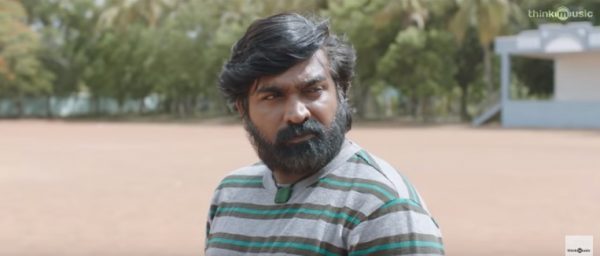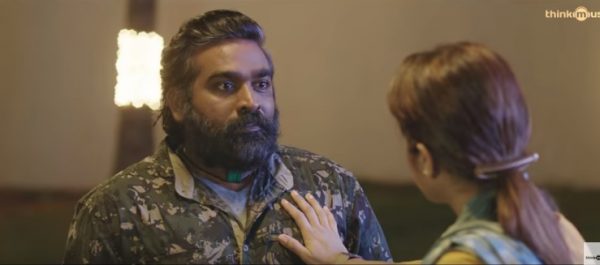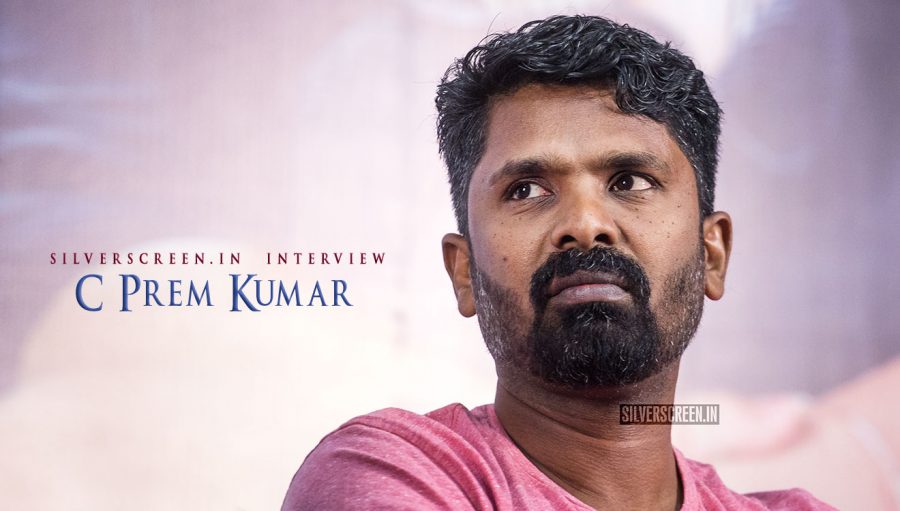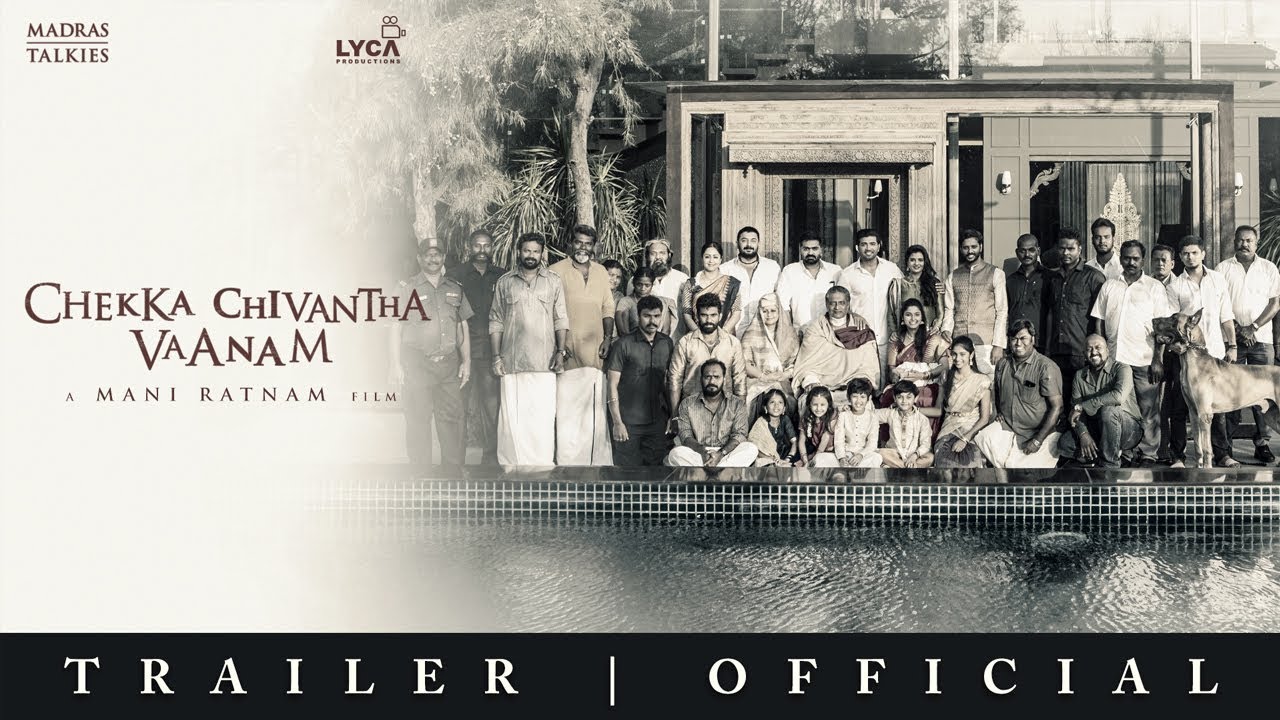In the 21 days since the release of C Prem Kumar’s ode to love – 96 – social media is filled with thousands of stories of teenage romance. Of couples who withered along the way, and others who went on to make a life. People are dissecting the film, made with the simplest of intents, trying to read meaning into every gesture, every shot. It’s done well commercially too, both in tier 1 and 2 cities in Tamil Nadu, and in neighbouring Kerala.
Director Prem Kumar seems unaffected by all the adulation. Mentally, he moved on from the film after handing over the first copy. He’s happy people are celebrating the love story with a difference, but also seems surprised by the kind of reception it has received.
It’s shortly after noon when he speaks from Chennai; there’s a faint meow in the distance – Prem raises nine cats at home in his tree-lined area of Valsaravakkam. A hat tip to them can be heard in ‘Life Of Ram’: “Iru kaalin idayilae, urasum poonaiyaai” [Like the cat that brushes against feet]. Apparently, lyricist Karthik Netha was at Prem’s house when he wrote that line. It is in this house that Prem wrote 96 and it is here that he’s writing his next film too. “I’m a laid-back writer,” confesses the director who delights in listening to people, and giving any question thoughtful consideration before answering it.
Among the kind words coming 96’s way, the most important relates to the portrayal of teenage love. It stays innocent, never transgressing into any other territory. How easy was it for Prem to take that decision, considering most teen love stories have focussed more on the yearning and passion than the lighting of one’s heart? “That was not a decision to make, it’s simply the way I write. I believe our writing is largely dependent on the surroundings in which we grew, how we are raised, the men and women we see… it is a process that develops over a period of time..”
The school scenes in the film ring true to so many. Drawing a line using chalk dust, cracking open native almond pods using a stone, the boy in the last bench who is lost in his own world…were they all reflections of Prem’s joy-filled childhood? “Definitely. I consider my childhood a treasure. We stayed innocent for a longer time. Nature taught us when we needed to. We were not ignorant, but innocent. There was a lot more personal interaction. We chatted with the rickshaw anna, the watchman anna, the person running the petty shop… That is still intact in smaller towns, not so much in metros. I think we are depriving children of their childhood; we need to help safeguard their innocence for some more time.”

Prem grew up in Thanjavur, two kms from the Big Temple. The school in the film is where he studied. It is Don Bosco, and a boys’ school, but was renamed All Saints for the film, because they wanted a co-ed school. Even when he speaks about it, a dose of nostalgia hits you; waves of it washed over those who watched the movie. “I have this tendency to dwell in my past. I have a very old school way of living. Even the furniture at home is 70-100 years old, my bike is 37, two years older than my wife. It’s not that I don’t accept new things, just that I veer towards the old,” says Prem.
*****
96 had its origins in a short story. “Ram was akin to this person who has seen a lot in life. Like how we change with every home we move into, transform with every migration. That story was all about nostalgia, looking back…”
When he translated that as a script, did Prem impose some boundaries upon himself? Did he have a set of parameters he would not cross? “Well, kind of. It may not be a pronounced line, but a blurred one. I decided that it would never turn cinematic or artificial or that I would never attribute Ram and Janu with qualities of a hero or heroine. Both characters are an amalgam of two or three people I know, and I was sure they would have to behave and speak like their inspirations would. That flow never changed.”
In interviews prior to the film’s release, the director had spoken about the trust both Vijay Sethupathi (Ram) and Trisha (Janu) had in the script and how they surrendered to it. Likewise, the third wheels in the love story, the couple’s friends Subha and Murali, are deeply protective, but also can’t help wondering if something wrong will take place. Do they vocalise the audience reaction? “No, I wouldn’t presume to generalise the opinions of the audience that way. Subha and Murali are a reflection of the common person who sticks to regular values. They seem something unusual happening, and theirs is a natural reaction.”
Many reviews have pointed out that Ram is the least toxic male lead we have seen on screen in a very long time. Was that intentional? “So many people, including some big names from the industry, asked me if Ram will work with the audience. They wondered if someone could be so innocent and spend an entire night with a girl and behave himself. And then I realised that we have not seen someone like this on screen, but they abound in real life, across generations. There are many, many men who will give women the respect and space they richly deserve. Sadly, they are ridiculed for their sensitivity and are not recognised for the lovely people they are. They are good, not because they can’t be bad, but because they choose to be good. That ordinariness is not boring, it’s endearing. If I have to give an earlier reference, I would say Ajith’s character (Suriya) in Kaadhal Kottai is one such person.”

In the film, Ram is a layered character. He does not shy away from physical intimacy. He thinks nothing before touching ‘sister’ Devadarshini’s pregnant stomach and blowing a kiss to his future ‘niece’ inside. At the same time, when Janu comes near him, he trembles, his heart races and he faints. He waits for Janu, over the years, and when she is angry with him, does not hesitate to fall at her feet. Not often has a mainstream hero done so on screen, except Vijay Sethupathi – he previously did so in Iraivi and Sethupathi. “I don’t understand why it’s a big deal. It’s the greatest form of heroism, I would think,” says Prem. “It’s most natural; their relationship is one among equals (remember the title card, where both Trish and Vijay’s name ran parallel on screen?)”
While pushing the envelope is a bold move, at any stage, did Prem wonder how people would accept the film? “I never walked down that path. This is not manipulated writing; it was utterly natural. My only worry was whether it would connect well, and that doubt crept in much later. But, as a writer, I believe that as long as you are talking the truth, you don’t have to worry. It’s only when you twist truth that fear steps in.”
This ability to not manipulate writing has a connect to Prem’s past as a documentary filmmaker; he assisted the veteran Alphonse Roy. “I would agree with the observation. You can’t manipulate a thing in Nature. You live in the now, and there’s a deep sense of contentment. You listen, and surrender to Nature, and she takes care of you.” Nature also gets credited in the title card!
When narrating the story too, Prem’s concern was whether he wanted to pass it on as bitter medicine or a honey-coated one. That quite explains how the concluding stretch of 96 plays out. “Life has given Janu and Ram a night to live their life. They begin as friends; he faints and she realises that nothing has changed about him. There’s a trigger. She gives him the plate she ate from. When she realises he never got married, they move to the next level. When she comes down from the hotel room, they know they want to spend time with each other. At the salon, when she wants him to be transformed into the boy from 1994, it is strengthened some more. The circle of love gets completed. They know they are there for each other. Following the scene in the restaurant where she re-imagines their love for his students, they return home almost as a couple. When she asks if it’s Ramachandran’s house, it’s actually her saying: ‘I should have been here; look at me, asking you if this is your house’. There’s enormous pain. When she sits on the bed and calls him, you realise they are on different planes. When the moment comes, they have to split. It is inevitable, and they just wait for or dread that moment.”
At a certain point, you know there’s only more pain in store for Ram and Janu. It’s almost as if she realises that first. After years of his begging her to sing “Yamunai Aatriley“, which she won’t because it is not an S Janaki song, and she will sing only her songs and the “Tamizh Thaai Vaazhthu“, she breaks into the number in a moment of infinite grace. “She probably will never see him again, and it’s like her saying, tholanju po, here’s a gift for you. Like a white lie for a friend, giving up your ideal.”
*****

There were rumours that S Janaki had a cameo in the movie, but Prem says they are just that. “She’s retired now, and we did not want to trouble her. But, news did get leaked that Janu was a big S Janaki fan,” says Prem.
Janu also breaks into the “Thendral Vandhu Theedum Bodhu” during the reunion, the lyrics almost mirroring their ill-fated love. “When Nasser Sir came in to record “Andadhi” for us, he was moved to see how we had used a song that originally appeared in a film he directed. He said it was almost like it was written for this situation.”
When the ultimate fate of their love finally dawns on Ram too, after years of not meeting her yes and avoiding direct contact the entire evening, he finally peers into her eyes, almost begging her to say. She is distraught, closes his eyes with her palms, weeps and leaves. “This is how society is. No one can make decisions for themselves. If you realise, as a teenager, her father chooses her birthday dress. She can’t tell her father that she likes this boy, she goes with his choice. That’s the case with so many people. I refuse to attend such weddings, however much I’m requested. This is injustice, where people preside over spoiling someone else’s life. But, it keeps happening. And, that loves only lives in a memory box. That is the painful reality, but I also wanted it to be poetic, because, I was sure that people were already weeping.”
Questions abound about the film’s target audience. Was it meant for the middle-aged, those flush in glow of first love, or those in the winter of their lives? “Well, everyone felt the middle-aged would react well to it, but I don’t really think a film works with a target audience in mind. What do you say about Baahubali, then? It’s set hundreds of years ago, but did we all not enjoy it? I’ve heard of older couples wiping their tears at the end of the movie, I’ve seen youngsters do the same. The youngest person who responded to me was Sethupathi’s son Surya. He’s about 14 and he told me he loved his father in the film and the creativity on screen.” And to those teenagers who felt Janu’s coming hindered chances of Ram and his student getting together, all Prem says is: “The student still has a chance!”
The real-life Subhashini lives in Singapore, and is a throwback to Prem’s growing-up years. “I grew at a time when we were not very physical in our demonstration of love. Even when tying a rakhi, the girls’ hands would not touch us! We can debate about that in today’s context, but we built bonds too. Subha is almost a member of my family, and she calls me ‘annathe’ too. But, I did give you that hugging scene in college,” laughs Prem. That one thing, he admits, did not come naturally. “I was particular the innocence should never be lost. That is should not grate on the mind,” says Prem, who has seen the film more than 35 times now!
The audience reaction also told him one thing. That even in today’s noisy world, silence can be appreciated. “Especially, in the end stretch, they were willing to listen, willing to hear their hearts. And so, it is our duty to give them such content.”
Recommended
In many ways, Prem is Ram. He says he grew up in awe [“brammippu”] of women. “They handle everything so well, they safeguard us all our lives, and sisters are nothing short of angels. Till my mid-30s, I stuttered and stumbled speaking to them. Mercifully, when I fell in love with Dhanalakshmi, who was almost raised by Alphonse Sir, she agreed on the second or third day. I was not at all romantic. I would ask her if she ate on time, if she slept well, if she washed her clothes… then I realised that being romantic is not a bad thing. But, I can never see women as equals; they are one step above us. I don’t see that changing ever.”
96 aside, life in Valasaravakkam for Prem is mostly about rushing back from work outside in time to feed the cats and the neighbour’s dog who drops in for lunch, allow the cats to draw figure of eights around his feet (“Are they getting ready for a driving license test?”), and delight when they follow him till the street corner. And then, to the accompaniment of cuckoos from the jamun tree, he puts pen to paper, to come up with yet another memorable story.
*****
The Prem Kumar interview is a Silverscreen exclusive.



